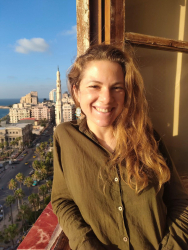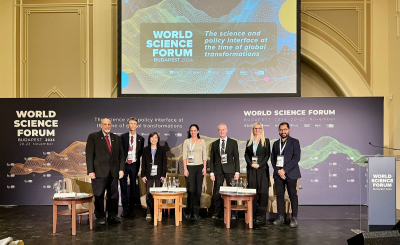


The InterAcademy Partnership (IAP) participated in the 2024 World Science Forum (WSF) held in Budapest, Hungary, from 20 to 23 November 2024. The event, themed "The Science and Policy Interface at the Time of Global Transformations," brought together global leaders, policymakers and the scientific community to address pressing challenges at the nexus of science and society.
IAP organised a workshop and two sessions that respectively highlighted its commitment to fostering trust in science, addressing climate change and health challenges, and advancing science education.
On 20 November, IAP, in collaboration with the Global Young Academy (GYA) and the Hungarian Young Academy, hosted a capacity-building workshop for 25 early-career researchers (ECRs) from around the globe. The workshop, supported by the WSF hosts, the Hungarian Academy of Sciences, focused on "Trust in Science" and featured dynamic discussions on transparency, effective communication and strategies for strengthening public confidence in science.
See all the workshop photos here.
Workshop facilitators were Priscilla Kolibea Mante (GYA), Tyrone Grandison and Biljana Gjoneska (alumna of the IAP Young Physician Leaders programme). Participants explored factors influencing public trust in science from the perspectives of society and scientists, presented Trust in Science case studies including how to build on them, and best practices in transparency.
"I realised that our workshop stood out amidst all sessions and prescriptive messages on what scientists should be doing for the future. We spent our time together to discuss on how scientists should be working and communicating science in a conscientious and ethical manner, thus fulfilling the instructive role of a workshop event. In this respect, I am deeply grateful for all your insights that enriched my life." Biljana Gjoneska, workshop facilitator and IAP YPL alumna.
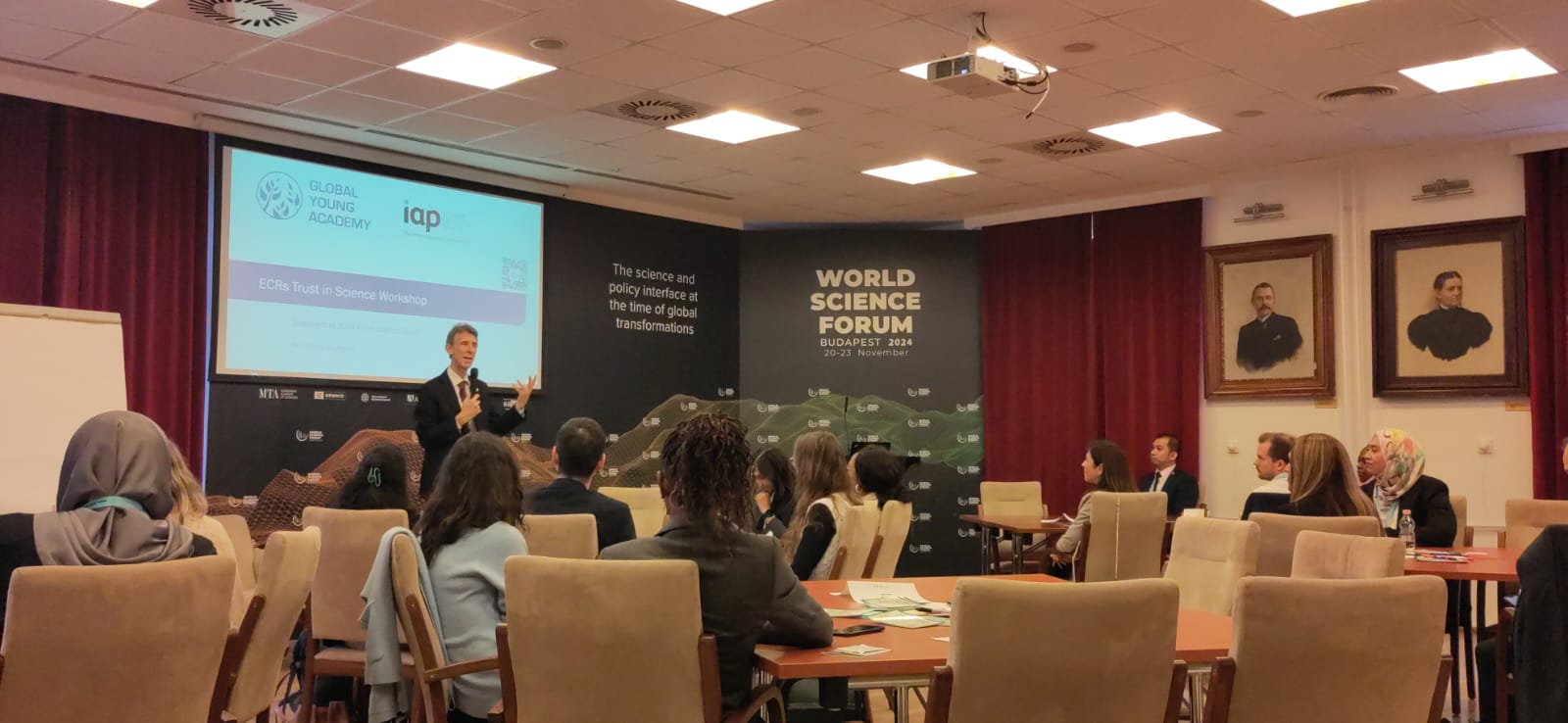
Participants, including IAP Young Physician Leader (2024 cohort) Dr. Márton Kolossváry, emphasized the importance of trust as the cornerstone of scientific credibility. During a reception following the official Opening Ceremony of the WSF during the evening of 20 November, Hungarian President Tamás Sulyok also met with workshop participants, underscoring the national commitment to science diplomacy and youth engagement.
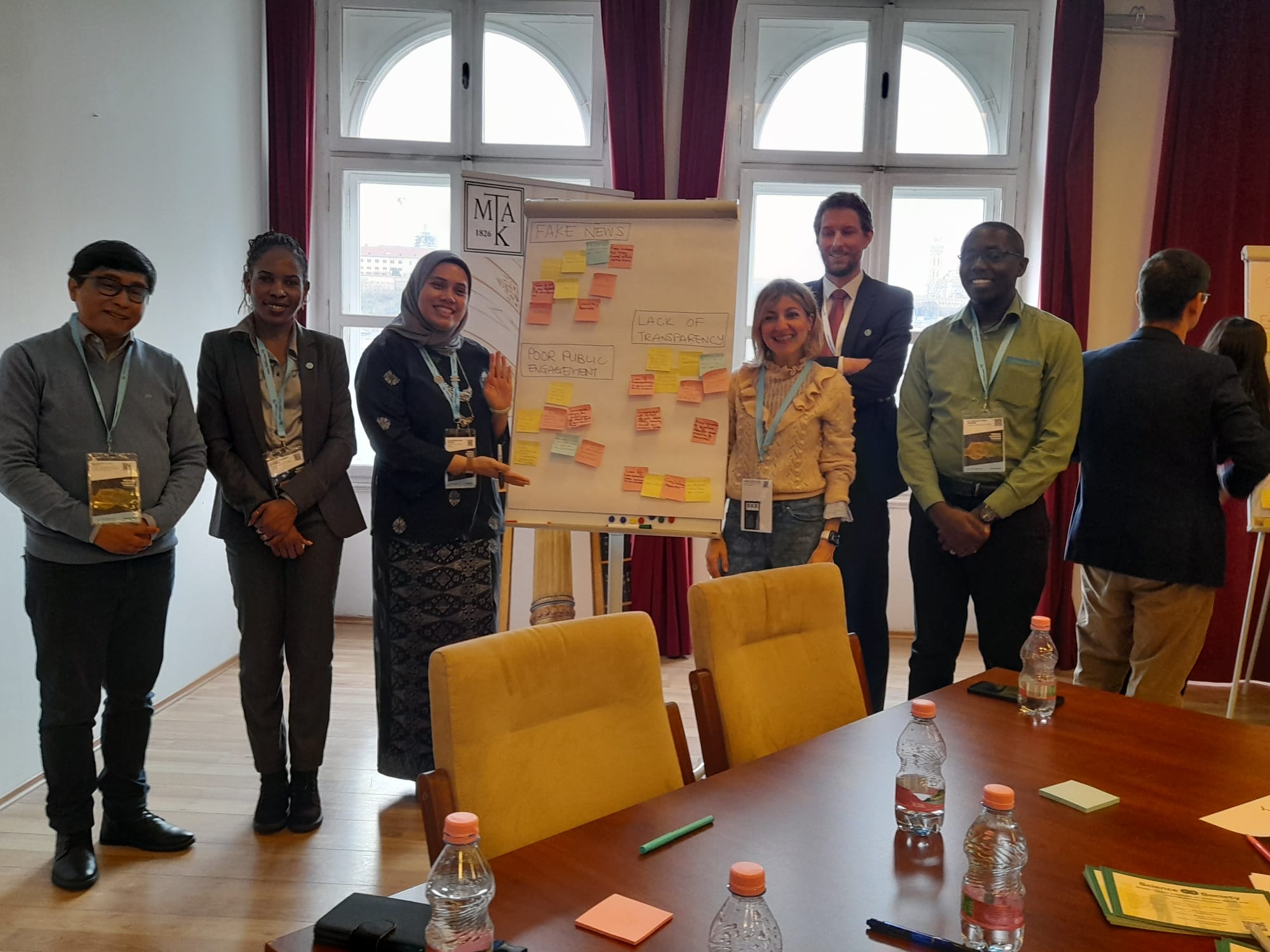
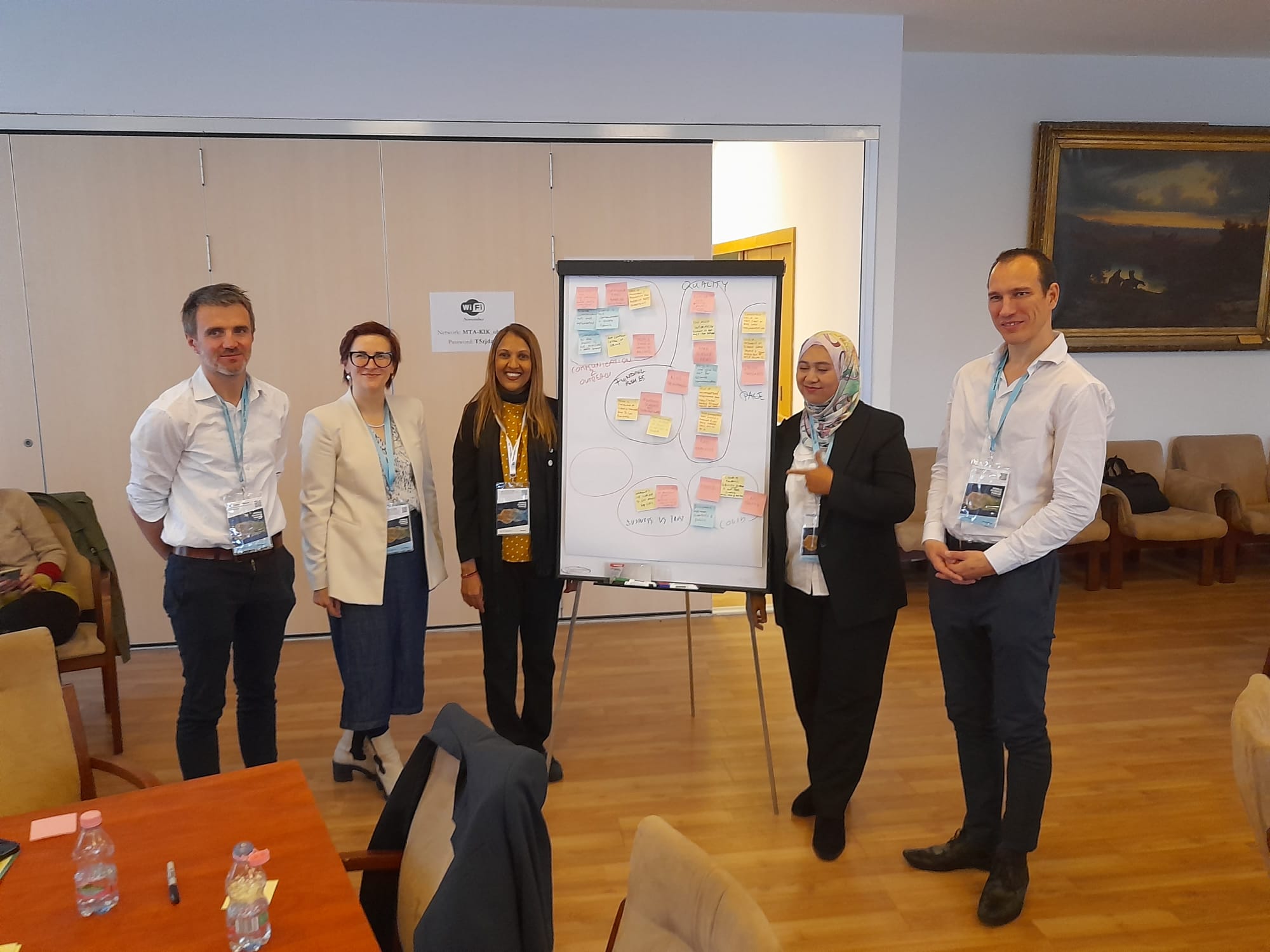
On 21 November, IAP Co-President Peggy Hamburg delivered a compelling address during the Plenary Session on Risk Assessment. Drawing on her extensive experience as the former Commissioner of the U.S. Food and Drug Administration (FDA), Hamburg highlighted the critical role of robust scientific evidence in regulatory decisions, particularly in balancing societal needs with scientific uncertainty. She stressed the urgency of building frameworks that ensure science-based policymaking remains credible and effective, especially in times of global crises.
See all the session photos here.
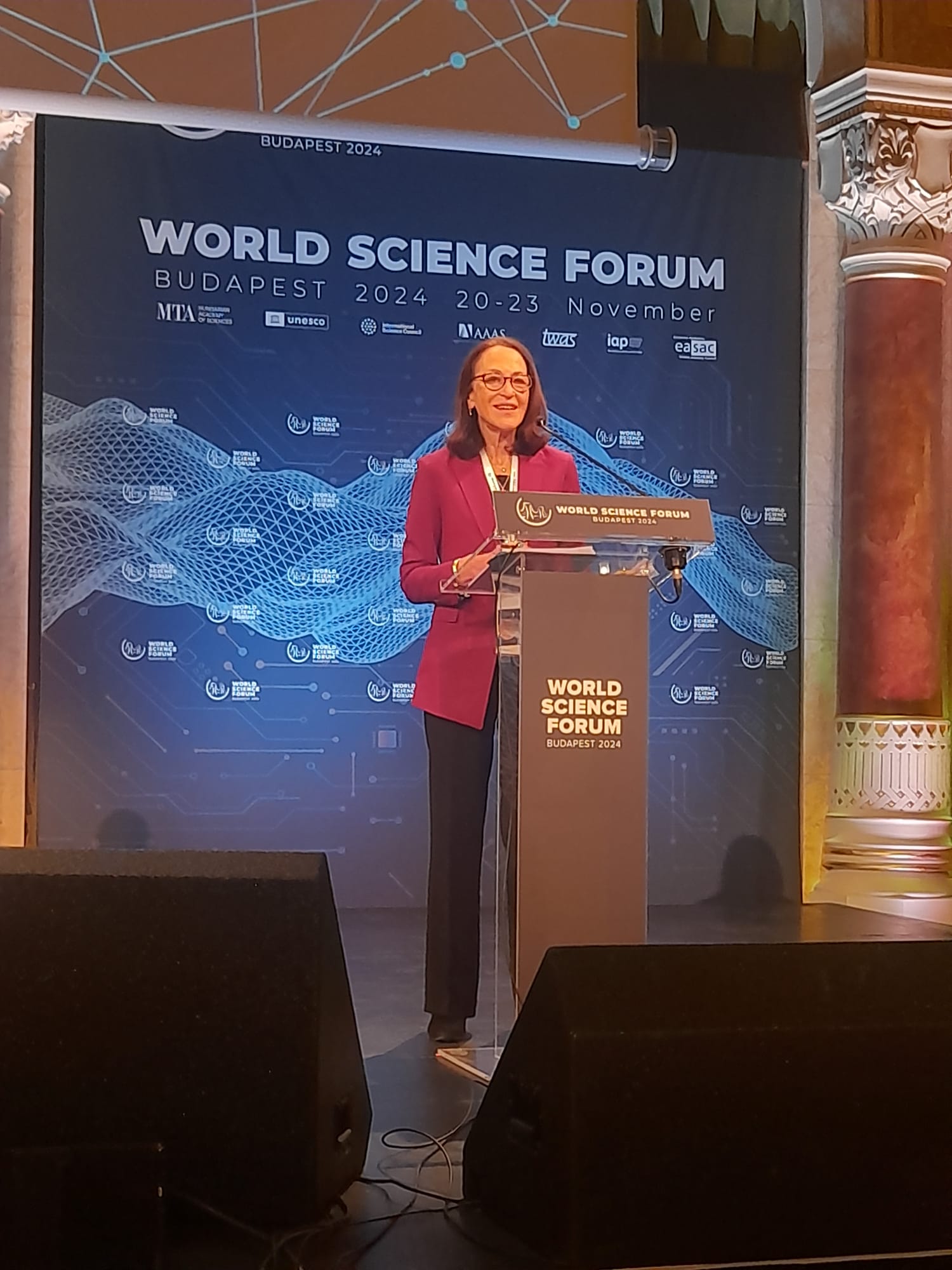
"Today, regulation is often under fire. Regulatory decisions must be grounded in the best possible science, but in the context of many other societal issues," explains IAP Co-President Peggy Hamburg at World Science Forum 2024 in Budapest.
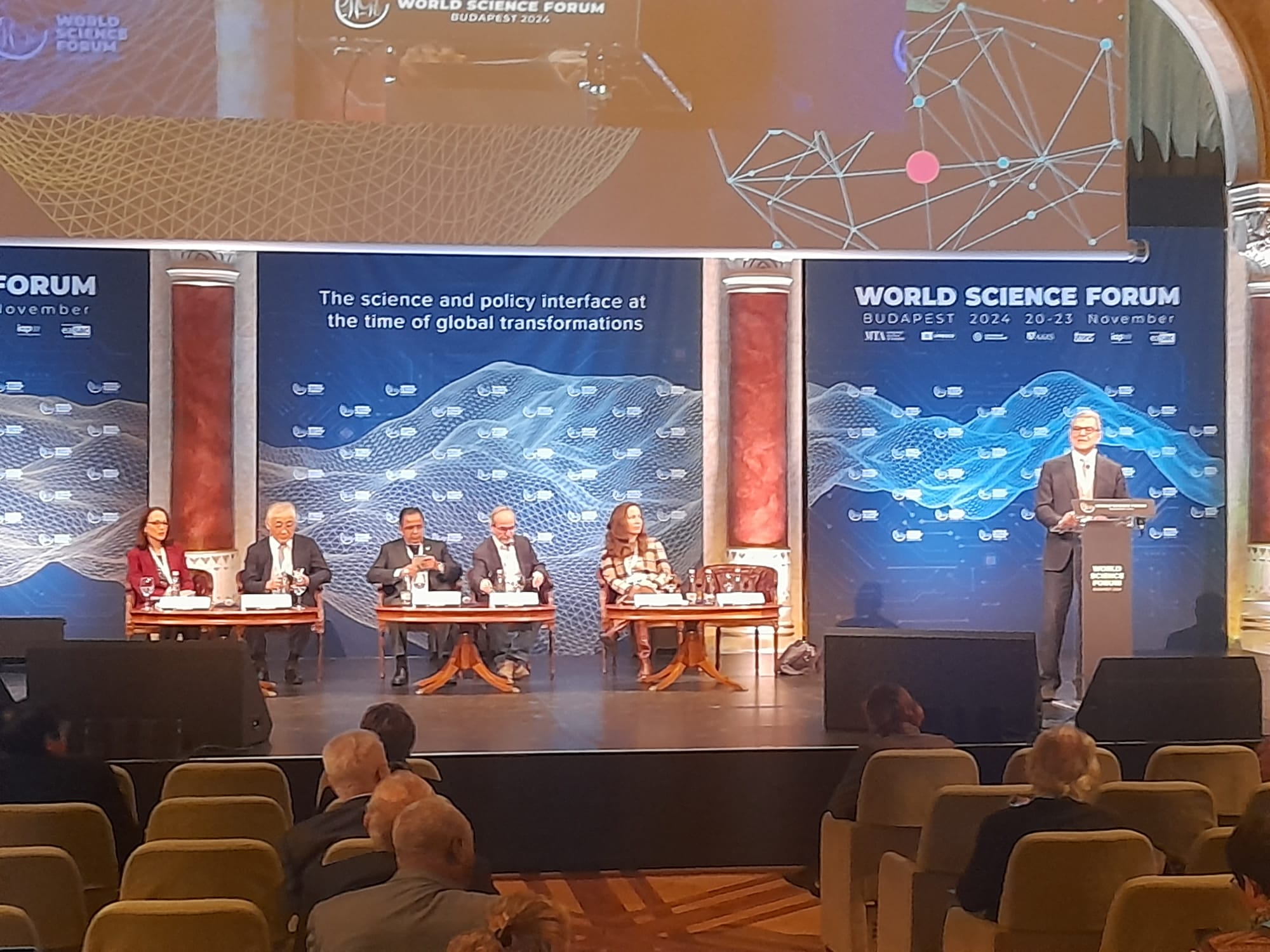
Later that day, IAP presented a thematic session titled "How Can Policy Address Health Impacts of Climate Change? Science, Uncertainty, and Risk." The session featured insights from distinguished speakers, including:
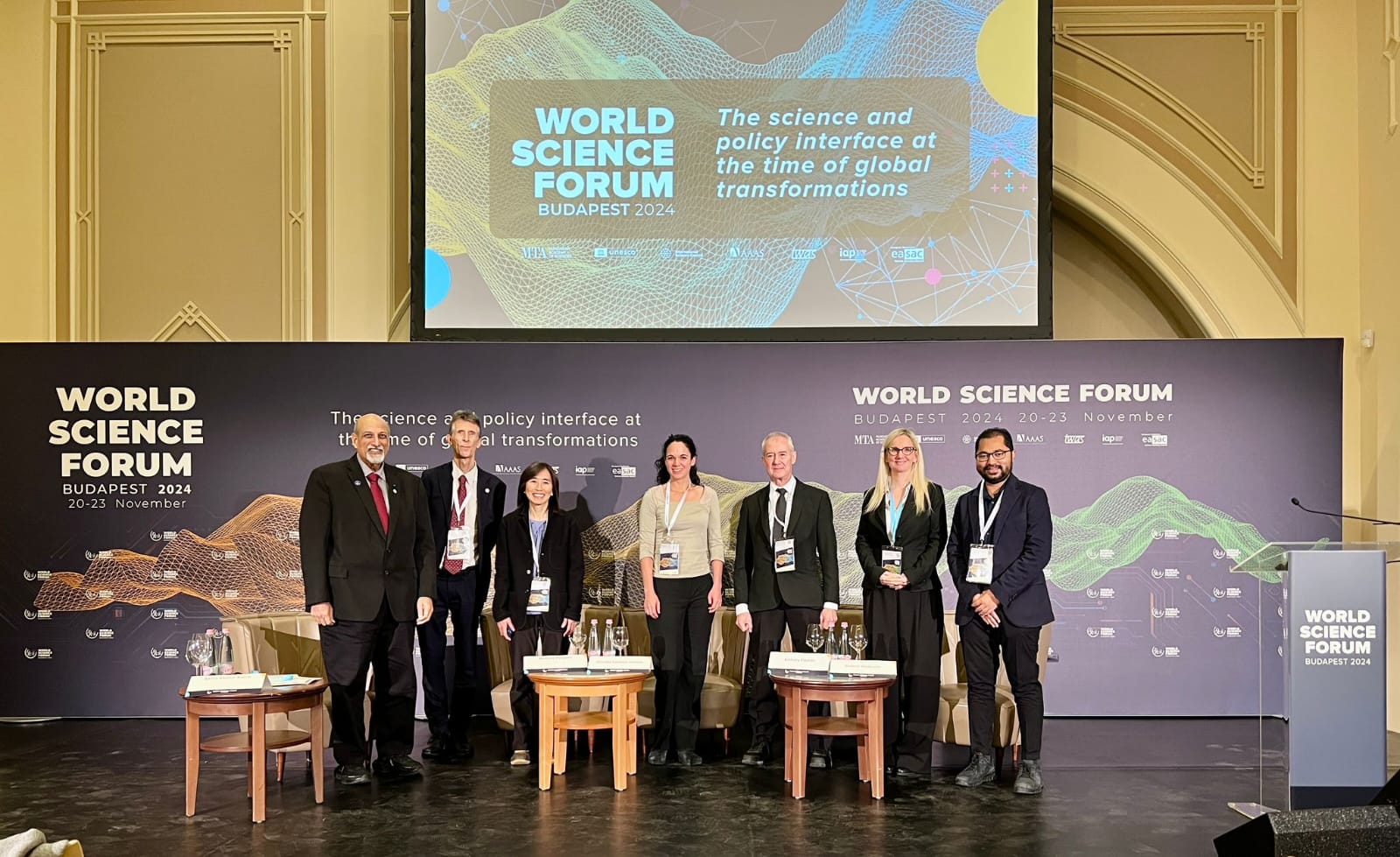
The lively Q&A session included questions from notable attendees like Virginia Murray (UK Health Security Agency) and Prof. Ratemo Michieka, President of the Kenyan Academy of Sciences, showcasing the global relevance of this critical issue.
See all the session photos here.
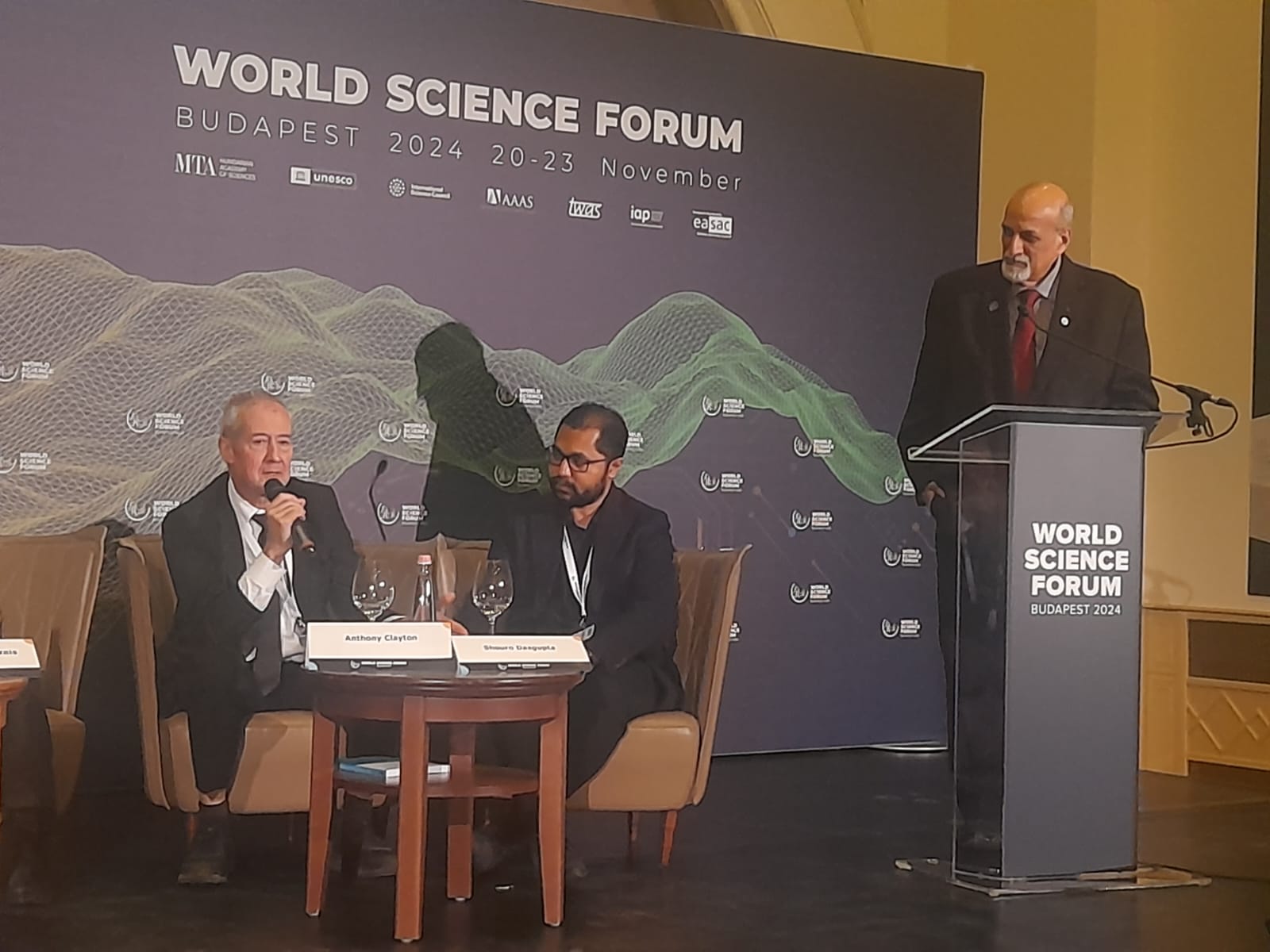
"Climate Change is affecting the human right to safe and healthy working conditions. The labour force is probably the most directly impacted sector due to climate change, with the highest effects in LMICs and low income sectors like agriculture and construction," explains Dr. Shouro Dasgupta.
"The World Health Organisation (WHO) has already stated that climate change is having fundamental effects on health. IAP and Save the Children are taking this work forward," highlighted Salim Abdool Karim.
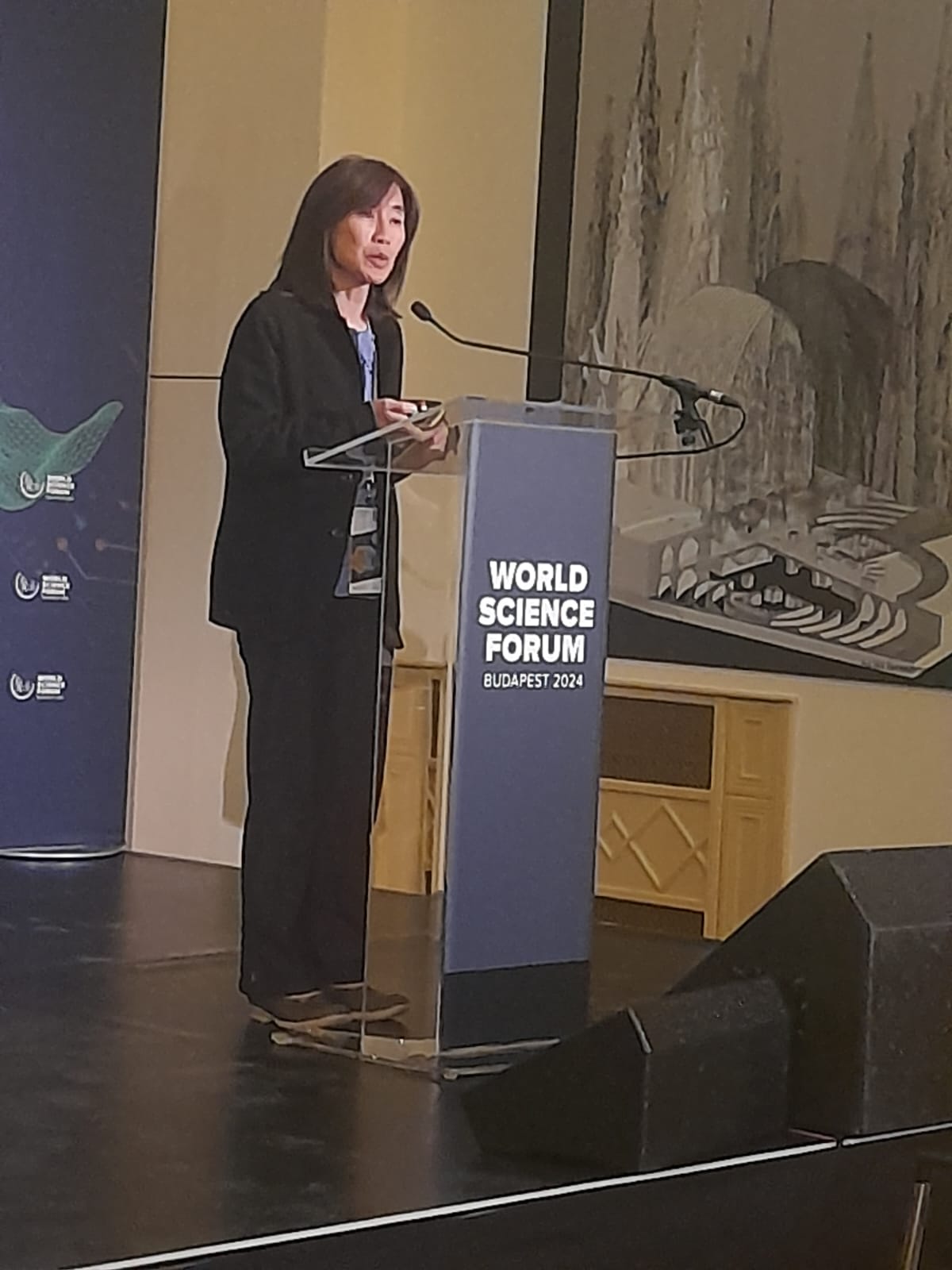
This IAP session was hosting two NGOs (Save the Children and the Kirkhouse Trust), thus opening up discussions to civil society. In the discussion section, Pongsiri emphasised that "not having the right people around the tables where decision-making happens" is a critical obstacle, and she stressed the necessity to increase inclusiveness in participation and representation. Read the full summary of the session here.
On 22 November, concluding IAP's formal contributions to the WSF, the session on "Education for Sustainable Development", co-organised with TWAS and UNESCO, underscored the importance of integrating sustainability principles into educational frameworks worldwide. Introducing the session, TWAS President, Quarraisha Abdool Karim, highlighted that Education for Sustainable Development (ESD) has been a topic of discussion for decades. It was first highlighted in 1987 in the Brundtland Commission’s report, Our Common Future, which emphasized education’s critical role in addressing unsustainable development. Teachers, in particular, were identified as fundamental agents of change. Subsequently, the United Nations launched the Decade of Education for Sustainable Development (2005-2014), led by UNESCO, which generated numerous guideline documents, many of which remain highly relevant and insightful. Yet, despite these efforts and the passage of decades—not merely years—ESD remains challenging to integrate into curricula, schools, and broader education systems. Why have so few countries - and teachers - around the world adopted or implemented ESD on a meaningful scale?
Moderated by TWAS President Quarraisha Abdool Karim, the session featured the following distinguished speakers:
The panel discussions reinforced the urgency of promoting ESD to equip future generations with the skills and mindset needed to navigate and address the complexities of a rapidly changing world; the panellists also presented toolkits and suggested actions that teachers can adopt in order to fulfill their mission of educating the younger generations towards a sustainable future.
See all the session photos here.
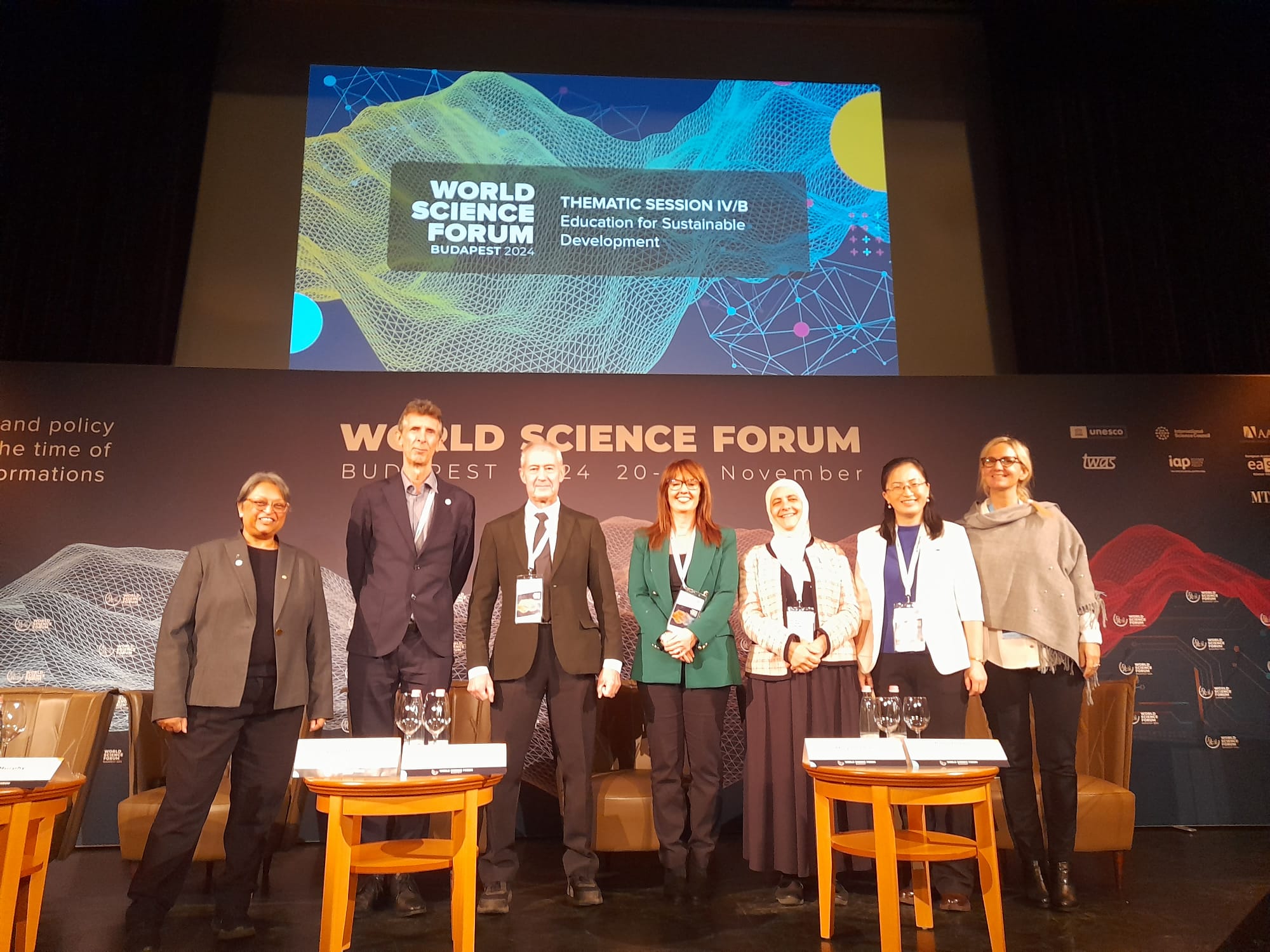
The World Science Forum 2024 was a resounding success for IAP, reinforcing its role as a leader in global science advocacy. Through its workshops, thematic sessions and participation in the WSF Declaration, IAP demonstrated its unwavering commitment to addressing global challenges through collaborative and science-based solutions.
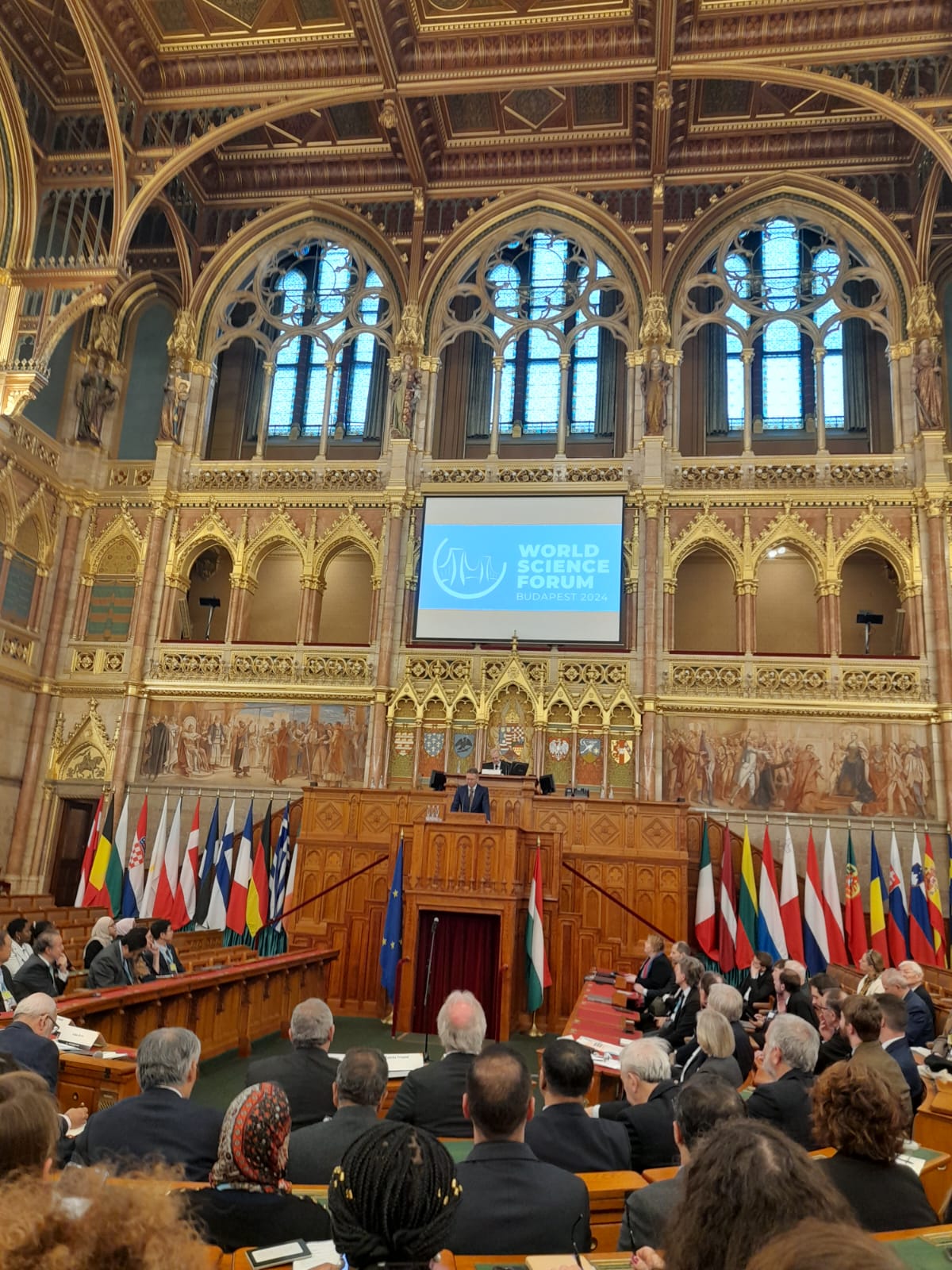
The WSF Closing Ceremony was held in the majestic venue of the House of Parliament, which inspired reflection on the vital role of scientists in improving the life of citizens. Here, WSF participants endorsed the 2024 WSF Declaration, which presents 10 'Calls' for greater action at the science-policy and science-public interfaces. Overall, IAP’s contributions left a lasting impact that will hopefully inspire continued action towards a more sustainable and scientifically informed world. The WSF concluded with the announcement that WSF 2026 will take place in Jakarta, Indonesia. As one of the organisations invited to guide the WSF, IAP is looking forward to working with colleagues and representatives of the Asian Region and Countries to make that event just as inspiring as this one held in Budapest, November 2024.
See all the photos of the handover ceremony and the endorsement of the declaration of WSF2024.
Learn More:
Explore the WSF 2024 Programme here.
IAP's Work on Climate Change and Health here.
IAP's Initiatives on Science Education here.
IAP's Young Physician Leaders Programme here.
More photos about the IAP sessions at WSF can be found here.
